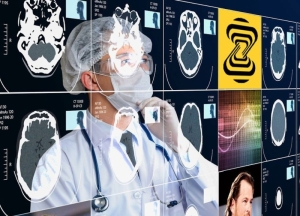by
Lauren Dubinsky, Senior Reporter | June 15, 2017

Machine learning is changing radiology
Zebra Medical Vision announced on Wednesday that its Deep Learning Analytics Engine received regulatory approval in Europe, Australia and New Zealand, and is now commercially available in those regions.
The engine can be integrated into PACS, RIS, Reporting and EMR systems and can be deployed in cloud and on-premise configurations.
It automatically analyzes CT data for signs of fatty liver, excess coronary calcium, emphysema, low bone density and vertebral compression fractures to help radiologists rapidly generate comprehensive, accurate reports.



Ad Statistics
Times Displayed: 16169
Times Visited: 33 Final days to save an extra 10% on Imaging, Ultrasound, and Biomed parts web prices.* Unlimited use now through September 30 with code AANIV10 (*certain restrictions apply)
Zebra-Med plans to release over a dozen new algorithms in the next few months that will be able to detect life-threatening diseases.
The aim of the engine is to help health care organizations spot chronic diseases earlier. That gives them time to establish preventative care programs that can improve care and reduce the overall cost of treatment.
“Machine Learning will change the way radiology is practiced in the coming years,” said Gabriel Krestin, of the University Medical Centre Rotterdam in the Netherlands, in a statement. “I believe it will make radiologists more productive, and I also believe that new use cases and value propositions will emerge as the technology is implemented widely. It is a very exciting time for radiology.”
A MarketsandMarkets report released last month estimated that the global artificial intelligence in the health care market is expected to hit almost $8 billion by 2022, up from $667 million in 2016. The deep learning technology segment is anticipated to grow at the highest rate.
Elad Benjamin, co-founder and CEO at Zebra-Med, stated that countries with a shortage of radiologists have shown a significant interest in the Deep Learning Analytics Engine. The company has already started working with luminary university hospitals in Europe, and plans to continue to expand its footprint across the continent.

